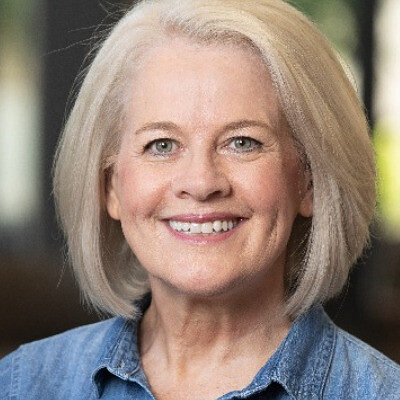This Lightning Talk will describe the Interprofessional Pediatric Screening Initiative (IPSI) developed through a seed grant from the Office of Interprofessional Education at the University of Oklahoma Health. This innovative learning experience brings together OT, PT, SLP, and medical students to learn how to administer developmental screening assessments as a collaborative team. Through partnership with community sites, the student teams practice these skills in real-world settings with children and families. This educational activity is designed to highlight the importance of interprofessional practice in pediatric settings. In this talk we will share the framework we developed for educating students as collaborative interprofessional teams. We will share lessons learned in developing this educational activity and early student learning outcomes related to interprofessional competencies.
This talk addresses the Summit theme of Preparing Students for Interprofessional Collaborative Practice. The IPSI program integrates shared didactic instruction, interprofessional case-based simulations, and community-based clinical experiences. Students collaboratively conduct developmental screenings and participate in guided team reflections focused on communication, role clarity, and care coordination. Interprofessional Education Collaborative (IPEC) Core Competencies are used to provide the framework for instructional design and assessment.
The IPSI students interact directly with families and community providers at local Headstart, Child Guidance, and public school programs. We debrief as a group following each community-based activity and teams reflect on their experiences with the families, as well as share their observations and ask questions of the community providers.
Evaluation of educational outcomes for the students through post event surveys demonstrates student growth in interprofessional competency. The IPSI training model enhances student readiness for interprofessional collaborative practice. Students report learning about the scope of practice of different health professionals. They find the hands-on experience of engaging collaboratively with families, community providers, translators, and their interprofessional team meaningful. This experience provides knowledge beyond what they could achieve in their standard curriculum. The students note increases in their confidence, advocacy, and leadership skills that will positively impact their future work.
The framework for this educational activity can be used in other institutions seeking to embed interprofessional education into pediatric training. The process used for developing this interprofessional educational activity can be taught to faculty and used across a variety of educational topics. By sharing our process and lessons learned we will provide a basis for other institutions to build similar educational activities for their students.
In support of improving patient care, this activity is planned and implemented by The National Center for Interprofessional Practice and Education Office of Interprofessional Continuing Professional Development (National Center OICPD). The National Center OICPD is accredited by the Accreditation Council for Continuing Medical Education (ACCME), the Accreditation Council for Pharmacy Education (ACPE), and the American Nurses Credentialing Center (ANCC) to provide continuing education for the healthcare team.
As a Jointly Accredited Provider, the National Center is approved to offer social work continuing education by the Association of Social Work Boards (ASWB) Approved Continuing Education (ACE) program. Organizations, not individual courses, are approved under this program. State and provincial regulatory boards have the final authority to determine whether an individual course may be accepted for continuing education credit. The National Center maintains responsibility for this course. Social workers completing this course receive continuing education credits.
The National Center OICPD (JA#: 4008105) is approved by the Board of Certification, Inc. to provide continuing education to Athletic Trainers (ATs).
This activity was planned by and for the healthcare team, and learners will receive Interprofessional Continuing Education (IPCE) credit for learning and change.


Physicians: The National Center for Interprofessional Practice and Education designates this live activity for AMA PRA Category 1 Credits™. Physicians should only claim credit commensurate with their participation.
Physician Assistants: The American Academy of Physician Assistants (AAPA) accepts credit from organizations accredited by the ACCME.
Nurses: Participants will be awarded contact hours of credit for attendance at this workshop.
Nurse Practitioners: The American Academy of Nurse Practitioners Certification Program (AANPCP) accepts credit from organizations accredited by the ACCME and ANCC.
Pharmacists and Pharmacy Technicians: This activity is approved for contact hours.
Athletic Trainers: This program is eligible for Category A hours/CEUs. ATs should claim only those hours actually spent in the educational program.
Social Workers: As a Jointly Accredited Organization, the National Center is approved to offer social work continuing education by the Association of Social Work Boards (ASWB) Approved Continuing Education (ACE) program. Organizations, not individual courses, are approved under this program. State and provincial regulatory boards have the final authority to determine whether an individual course may be accepted for continuing education credit. The National Center maintains responsibility for this course. Social workers completing this course receive continuing education credits.
IPCE: This activity was planned by and for the healthcare team, and learners will receive Interprofessional Continuing Education (IPCE) credits for learning and change.
Learners can claim CE credit by completing the Daily Evaluation.




